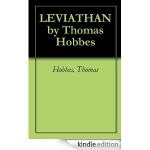|
This section contains 408 words (approx. 2 pages at 400 words per page) |

|
Part 1 Chapters 8, 9, & 10 Summary and Analysis
Hobbes writes about virtue, knowledge, and power and worth. Virtue "consisteth of comparison...For if all things were equal in all men, nothing would be prized."
A person increases his or her intellectual virtue by having natural wit or a quick imagination. When a person is good at combining ideas, especially when the idea is so unique that nobody else would have thought of it with such ease and speed, it is said they have good wit. It is important to have good wit and prudence because this makes for good leaders.
From wit and judgment spring desire of power. This passion for power can be dangerous because people can use evil means to get power. When people cannot get more power, they become angry. If anger spreads through the minds of people, they will eventually revolt. They then...
(read more from the Part 1 Chapters 8, 9, & 10 Summary)
|
This section contains 408 words (approx. 2 pages at 400 words per page) |

|




